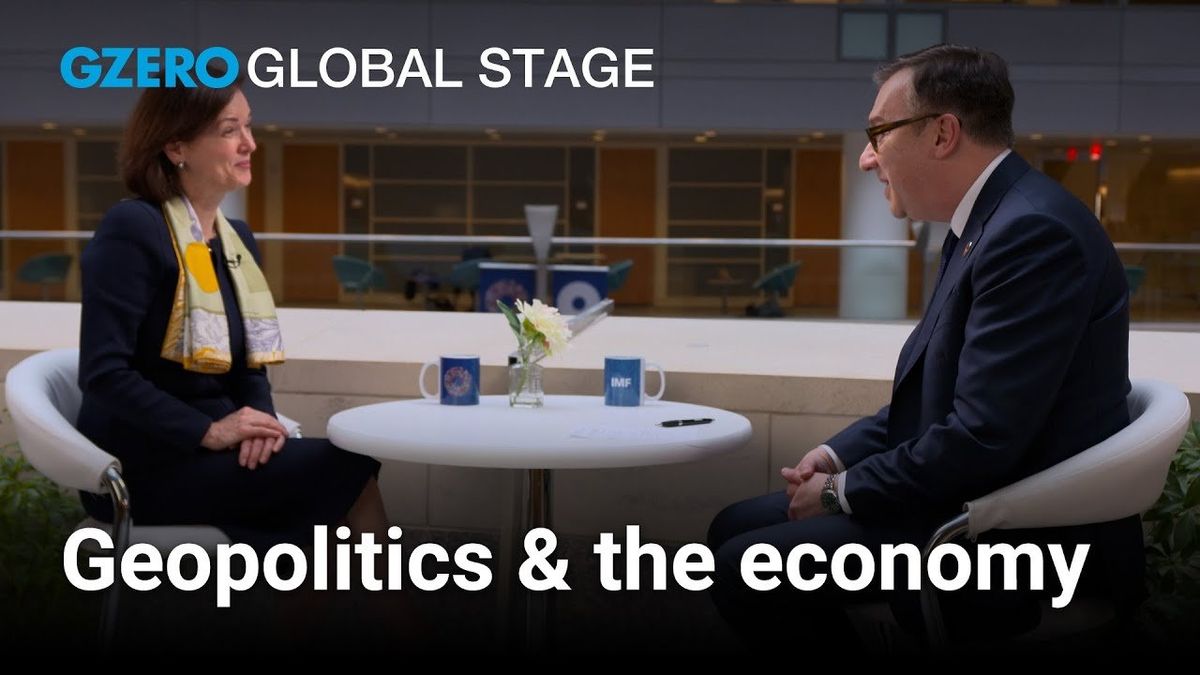There’s no escaping the intricate link between economics and geopolitics. Today, that link has become a crucial factor in investment decision-making, and who better to speak to that than Margaret Franklin, CEO of CFA Institute, a global organization of investment professionals? Franklin sat down with GZERO’s Tony Maciulis at a Global Stage event for the IMF-World Bank spring meetings this week.
Economists once predicted that sovereign debt would overwhelm global markets. But now, having been through the pandemic, the advent of AI, and wars in the Middle East and Ukraine, “there's almost a level of immunity,” she says, “to the dramatic nature of it until something really cataclysmic happens.”
And then? “The response, generally speaking, has been pretty positive,” Franklin says, with central bank intervention saving markets and building resilience.
In much the same way, the World Bank is trying to boost investor confidence by making changes that leverage private sector capital for public sector goals by better evaluating what level of risk the private sector will accept.
Individual investors should do the same, Franklin advises. “Really evaluate your risk profile … making sure you diversify,” she says, noting that fixed-income offerings have become more attractive. Younger investors, meanwhile, need to be cautious with getting their information on social media, she adds.


















